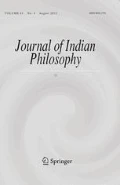Bibliography
Brough, J. (1971). ‘Soma and Amanita muscaria’, Bulletin of the School of Oriental and African Studies 34: 331–362.
Buiskool, H. E. (1939). The Tripādī: being an abridged English recast of Pūrvatrāsiddham, Leiden.
Cardona, G. (1976, 1980). Pānini: A Survey of Research, The Hague; Delhi-Varanasi Patna.
Eggeling, J. (1882–1900, 1966). The Śatapatha Brāhmana, I–V, Delhi-Patna-Varanasi.
Frauwallner, E. (1960). ‘Sprachtheorie und Philosophie in Mahābhāsyam des Patanjali’, Wiener Zeitschrift für die Kunde Sud- und Ostasiens 4: 92–118.
Ghosh, B. K. (1934). Pānini and the Rkprātiśākhya, Indian Historical Quarterly 10: 665–670.
Gonda, J. (1970). The Ritual Sūtras, Wiesbaden.
Hubert, H. and M. Mauss (1897–1898). ‘Essai sur la Nature et la Fonction du Sacrifice’, L'année sociologique 2: 29–138.
Jha, V. N. (1973). ‘Śākalya and Pānini’, Bulletin of the Decan College Research Institute 33: 223–226.
Jha, V. N. (1975a). ‘Case-Terminations and Padapāthakāra's System of Analysis’, Journal of the Ganganatha Jha Kendriya Sanskrit Vidyapeetha (Allahabad) 31: 297–311.
Jha, V. N. (1975b). ‘Iti-karana in the Rgveda-Padapātha’, Bulletin of the Deccan College Research Institute 35: 49–54.
Jha, V. N. (1976). ‘Stages in the Composition of the Rgveda-Padapātha’, Bulletin of the Deccan College Research Institute 35: 47–50.
Joshi, S. D. and P. Kiparsky (1979). ‘Siddha and Asiddha in Pāninian Phonology’, in D. Dinneen (ed.), Current Approaches to Phonological Theory, 223–250.
Kashikar, C. G. (1968). A Survey of the Śrautrasūtras, Bombay.
Kielhorn, L. F. (1876, 1965). Kātyāyana and Patanjali: Their Relation to each other and to Pānini, Bombay, Osnabrück.
Kiparsky, P. (1979). Pānini as a Variationist, Poona and Cambridge.
Kiparsky, P. (unpublished). ‘Case, Control, and Ellipsis in Pānini's Grammar’.
Kiparsky, P. (unpublished). ‘The Vedic and Pāninian Accent Systems’.
Kiparsky, P. and J. F. Staal (1969), ‘Syntactic and Semantic Relations in Pānini’, Foundations of Language 5: 83–117.
Mylius, K. (1970). Review of Kashikar 1966, Mitteilungen des Instituts für Orient-forschung, Berlin 16: 331–335.
Navathe, P. D. (1970). ‘On dhāyyā and sāmidhenī’, Indica. Organ of the Heras Institute of Indian History and Culture 16: 149–156.
Navathe, P. D. (1972). ‘Ritualistic Prolation and its Treatment in Pānini's Grammar’, Centre of Advanced Study in Sanskrit Studies 1: 55–64.
Ojihara, Y. (1978a). ‘Sur une formule Patañjalienne: na cedānīm ācāryāh sūtrāni krtvā nivartayanti’, Indologica Taurinensia 6: 219–234.
Ojihara, Y. (1978b). ‘Sur le nivartana, dit des cheveux: “tailler” ou “séparer”?’ Journal of Indian and Buddhist Studies 27: 502–496.
Ojihara, Y. (1980), ‘Sur le nivartana, dit des cheveux: Addenda’, A Corpus of Indian Studies: Essays in honour of Professor Gaurinath Sastri, Calcutta, 42–51.
Reichling, A. J. B. N. (1935). Het Woord, Nijmegen.
Renou, L. (1941–1942). ‘Connexions Entre le Rituel et la Grammaire en Sanskrit’, Journal asiatique 233: 105–165 (also in Staal, 1972, 434–469).
Renou, L. (1960). ‘Le Destin du Véda’, Études védiques et paninéennes, vol. 16, Paris.
Renou, L. (1963). ‘Sur le Genre du Sūtra dans la Littérature Sanskrite’, Journal asiatique 251: 165–216.
Renou, L. (1978). L'Inde Fondamentale: Etudes d'Indianisme Réunies et Présentées par C. Malamoud, Paris.
Staal, J. F. (1963). Review of H. Scharfe, Die Logik im Mahābhāsya, Journal of the American Oriental Society 83: 252–256.
Staal, J. F. (1965). ‘Context-Sensitive Rules in Pānini;, Foundations of Language 1: 63–72.
Staal, J. F. (1967). Word Order in Sanskrit and Universal Grammar, Dordrecht.
Staal, J. F. (1969). ‘Sanskrit Philosophy of Language’, Current Trends in Linguistics 5: 499–531, also in Parret, H. (ed.), (1976), History of Linguistic Thought and Contemporary Linguistics, Berlin-New York 102–136.
Staal, J. F. (ed.), (1972). A Reader on the Sanskrit Grammarians, Cambridge.
Staal, F. (1975). Exploring Mysticism: A Methodological Essay, Berkeley-Los Angeles-London; also: Penguin Books.
Staal, F. (1979). ‘Ritual Syntax’, in Sanskrit and Indian Studies: Festschrift Ingalls, Dordrecht, 119–142.
Staal, F. (1980). ‘The Meaninglessness of Ritual’, Numen. International Review for the History of Religions 26, 2–22.
Staal, F. (1982a). AGNI - The Vedic Ritual of the Fire Altar, Vols. I–II, Berkeley.
Staal, F. (1982b), ‘The Himalayas and the Fall of the Concept of Religion’, in: Catalogue, The Silk Route and the Diamond Path.
Thieme, P. (1935a). Pānini and the Veda: Studies in the Early History of Linguistic Science in India, Allahabad.
Thieme, P. (1935b). ‘Bhāsya zu vārttika 5 zu Pānini 1.1.9 und seine einheimischen Erklärer: ein Beitrag zur Geschichte und Würdigung der indischen grammatischen Scholastik’, Nachrichten von der Gesellschaft der Wissenschaften zu Göttingen, Philol.-hist. Klasse, Neue Folge, 1.5.171–216; also in Staal, 1972.299–332.
Thieme, P. (1937–1938). ‘On the Identity of the Vārttikakāra’, Indian Culture 4: 189–209 (also in Staal 1972.333–356).
Tsuji, N. (1952). On the Relations between Brāhmanas and Śrautasūtras, Tokyo (in Japanese, with a summary in English).
Van Buitenen, J. A. B. (1950). ‘Aksara’, Journal of the American Oriental Society 50: 176–187.
Author information
Authors and Affiliations
Additional information
This is a revised version of the first Professor P. D. Gune Memorial Lecture delivered at Poona on July 12, 1981, under the joint auspices of the Bhandarkar Oriental Research Institute and the Centre of Advanced Study in Sanskrit of the Poona University. There were three such lectures, which will together be published separately under the title ‘The Science of Ritual’. The lectures were given during the International Seminar on Pānini, held during July 9–14, 1981, under the auspices of the Centre of Advanced Study in Sanskrit. The written text has substantially benefitted from other lectures, remarks, discussions, and comments during the same seminar, especially by Professors S. D. Joshi and P. Kiparsky. I am grateful to them, and especially to Professor R. N. Dandekar, for inviting me to deliver these lectures.
Rights and permissions
About this article
Cite this article
Staal, F. Ritual, grammar, and the origins of science in India. J Indian Philos 10, 3–35 (1982). https://doi.org/10.1007/BF00200181
Issue Date:
DOI: https://doi.org/10.1007/BF00200181

